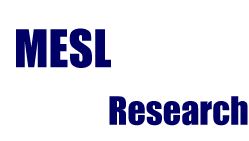





Since 1993 our approach to ENVIRONMENTAL HEALTH issues has always been linked to the following:
PREMISE: All human interventions to natural environments, our demand for built environments and natural or forced disasters sooner or later will be associated with health issues.
Based on this premise, it is clear that all environmental intrusion will have health effects implications imbedded in them. This is apparent and repeatedly acknowledged in all studies on environmental and environmental health management. Thus, in our present day society, the environmental management model we have to work with can be identified as Environmental Management for Sustainable Populations. Here the term environment implies build and/or natural environments. In this management model, the goal will be the long term harmonious management of economic resources and environmental preservation, for health, safety and prosperity of sustainable populations. Policy decisions that will be made in this management model will explicitly include a very complex, dynamic and also the very delicate "population" or the "human" component. When populations are explicitly included in the overall management framework, then social policy, ethics and health issues assume a very important role in the management strategy. It can be anticipated that, to identify and resolve the problems of this management style, scientists from the fields of social sciences, public policy, health sciences, basic sciences, and also the engineering field need to work more closely than they have in the past. To establish this working environment more barriers need to be broken, new rules need to be established, and more importantly, a common language has to be introduced. Technological, scientific and holistic advances made in each field need to be translated into this common language and need to be put to use for the ultimate goal of maintaining sustainable populations. In this approach economic incentives and environmental constraints have to be considered harmoniously, with main emphasis placed on protection and preservation of human health and sustainability of populations.
This premise, which is tightly integrated in all MESL research, education and outreach activities, was first outlined in 1995 at a NATO Advanced Study Institute (M.M. Aral, NATO ASI on "Recent Advances in Groundwater Pollution Control and Remediation" 1995). More recently a more detailed discussion of these "Environmental Management Paradigms" has been presented at the "International Conference on Environmental Exposure and Health" held in Atlanta, Georgia USA (M. Aral, "Perspectives on Environmental Management Paradigms," Proceedings of International Conference on Environmental Exposure and Health, October, 2005).
More and more we specialize in this particular research field and the domain of problems we are invited to collaborate on are expanding exponentially, more and more we are recognizing the importance of the premise we have started with several years ago.
As a part of our task in information dissemination, which is the main purpose of this web site, below we provide links to current research activities in Environmental Management, Site Specific Studies that are completed and other Research Results. In a sense here you will find our success stories, failures and lessons learned and how health scientists and engineers are collaborating to address health issues of the 21st Century. You may follow the links below to explore these research activities. In other MESL web pages on this site you will find out other information on the MESL research program.
The SHRINKING ICE CAP at the North Pole (1980-2007):


